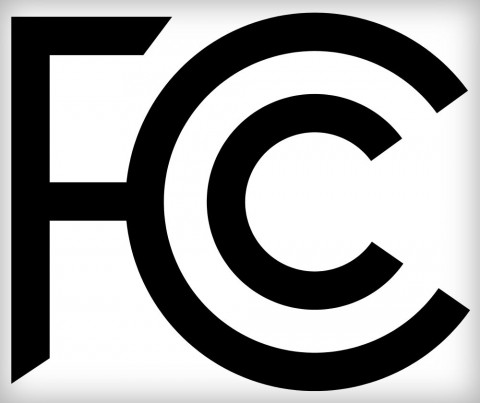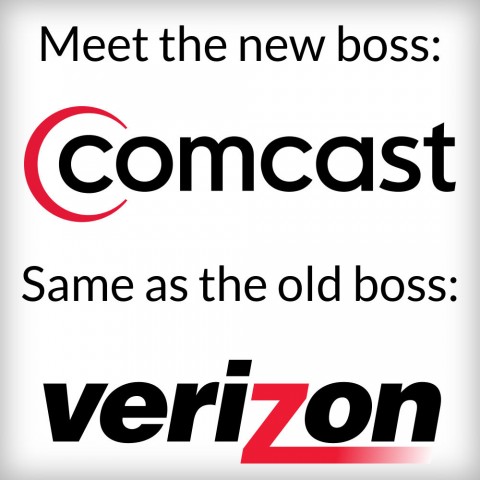According to Time (and The Washington Post, and everybody else), the Federal Communications Commission (FCC) is proposing new rules today that would end even the most perfunctory nod to net neutrality — the idea that the infrastructure of the Internet should treat all data equally. Under the new system, says Time, Internet Service Providers (ISPs) would be able to charge content companies for preferential treatment over the “last mile” to users. They would be required to offer a baseline level of service to their subscribers, and they would be prohibited from blocking or discriminating against online content. But large Internet companies like Comcast and Verizon would be allowed to strike special deals with Internet companies like Netflix or Skype for preferential treatment.
In a way, this is a codification of a US Court of Appeals decision earlier this year that ruled that because ISPs are not classified as common carriers — as communications utilities like telephone companies — they are not subject to requirements that they not discriminate against entities on their networks. So if you’re Ma Bell — back when landlines were a thing — you had to connect every call to every recipient with all due speed and quality, regardless of its point of origin. But if you’re Verizon or Comcast — in the broadband business today — there’s no such constraint.
The language of the FCC — at least yesterday, before the announcement was official — seemed to frame the new rules as a way of making this iteration of the Internet ecosystem more fair. Every content provider would get a baseline level of access, the spokespeople said, and nobody could be blocked entirely. But those protestations are awfully vague. What baseline level means, they don’t say. And what it counts for when the pay-to-play players’ pages are loading at twice the baseline speed — who knows?
To me, baseline levels sounds an awful lot like an invitation to what amounts to racketeering. And I say that because we’ve already seen it happen.
In the last couple of months, we’ve seen Netflix sign a deal with Comcast in which they bought priority access to end users. This means that Netflix has seen a huge jump in speeds at home. Sixty-five percent, according to Ars Technica. But buying priority access, here, seems to be something like buying protection from the mob. According to The Consumerist:
From January through September of 2013, [Netflix speeds on] Comcast bounced around between 2 Mbps and about 2.13 Mbps. But starting in October, their performance fell and by January of this year, their average was closer to 1.5 Mbps.
And as the Ars Technica folks write, running Netflix through a virtual private network (VPN) during that period had the potential to bring it up to peak speeds.
This suggests throttling: when Comcast knew its users were streaming Netflix, speeds dropped; and when they didn’t — because the data was encrypted by the VPN — speeds rose again.
So by signing onto Comcast’s system of tolls, what Netflix did in fact was pay Comcast not to ruin its business by pinching off its ability to reach its paying customers altogether.
It’s a nice movie-rental business you’ve got there. Shame if something were to happen to it.
Coming back to the FCC’s new proposed rules, what this means is that net neutrality is done. It means that if you’re a Netflix — or a Google, or a Skype, or a Facebook — and if you can afford to pay millions of dollars of Internet tolls, you can have access to the A-1, ultra-spiffy, information superhighway. But if you’re a startup, or if you’re an open source social network like Diaspora, or if you’re trying to put together an outfit that serves as an alternative to the behemoth YouTube, the likelihood is that you’re going to get coach-class Internet. Instead of a superhighway, you’ll get a picturesque walk down a dusty information country road.
And don’t think — please don’t think — that this is anything but a bad deal for end users. What we get if these rules go into effect is:
- A system in which our ISPs — a scant handful of giant corporations — get to pick who succeeds and who fails in the Internet business world.
- A system where our ISPs decide on our behalf what we should be doing with our Internet access.
- An invitation to companies like Netflix and Amazon to raise their prices dramatically — because they need to make up for their Internet tolls somewhere.
- And a system in which innovation and utility at the content level are curbed to feed broadband’s bottom line.
It’s not like the FCC couldn’t stop this. All it would take to reverse the January Court of Appeals decision, as Ars Technica wrote at the time, would be rules reclassifying broadband carriers as common carriers. But perhaps because FCC chairman Tom Wheeler’s background is as a lobbyist for the cable and wireless industry, with prior positions including President of the National Cable Television Association (NCTA) and CEO of the Cellular Telecommunications & Internet Association (CTIA) — that’s not the direction in which they have decided to go.
The good news, however, is that at this point, these are only proposed rules. We can tell the FCC what we think of them. And we should. Here are the email addresses for the five current FCC commissioners — Jessica Rosenworcel, Ajit Pai, Mignon Clyburn, Thomas Wheeler, and Michael O’Rielly:
Ajit.Pai@fcc.gov
Jessica.Rosenworcel@fcc.gov
Mignon.Clyburn@fcc.gov
Mike.O’Rielly@fcc.gov
Tom.Wheeler@fcc.gov
Email them and let them know that you like your Internet free and open. Let them know that you don’t want your broadband carrier all up in your business. Say no way to pay for play. And tell them that their jobs as regulators mean that they are supposed to be representing the interests of the people — not giant corporate players.

